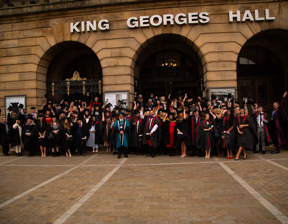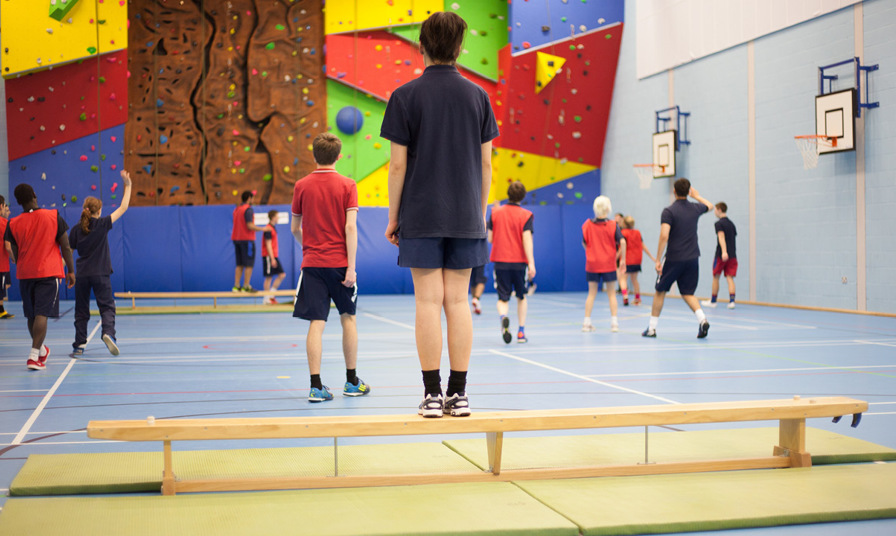Entry Requirements
You’ll need 48 UCAS points to join this programme. In addition, for this programme, you will be required to have a GCSE (or equivalent qualification) at grade 4/C or above in English, or an equivalent level 2 qualification in English.
Study Mode
Full time
Duration
2 years
Timetable
Check with your tutor
Key Features & Benefits
- Validated by UK Top 15 Lancaster University
- Study in our dedicated University Centre at The Blackburn Learning Quarter
- Choose from a range of optional modules depending on your interests
- Benefit from our industry bespoke facilities, such as the Health Ward and the Sensory Room
Our Foundation Degree in Working with Children and Young People is for those who wish to work, or wish to work in a higher paid position, in youth work settings or childcare settings.
-
Overview
This course should appeal to you if you need to fit studying around other commitments or if you are looking to take your first step into higher education after a gap of study.
This qualification is intended to ensure that those students who wish to work with children and young people are equipped with the knowledge and skills to support their emotional development and stability. It combines underpinning academic knowledge and work-based learning and assessment to allow students to understand how current policy and trends inform the working environment.
There is also the opportunity for students to engage in personal development and reflection to build their confidence and further their career opportunities.
-
What will I study?
All students take a total of 120 credits per level.
Level 4 Modules (all modules are mandatory) include:
- Child and Adolescent Development
- Ethical, Legal and Professional Responsibilities
- Effectively Supporting Children and Young People
- Reflective Practice
- Research Methods
- Integrated and Multi-Agency Working
Level 5 Modules (there are 5 mandatory modules and 1 optional module out of a choice of 3 as indicated by *) include:
- Social Policy
- Safeguarding Children and Young People
- Research Project
- Work Based Learning
- Youth Offending*
- Substance Misuse and Risk-taking Behaviour*
- Working with Abuse
- Mental Health*
Optional Modules
If we have insufficient numbers of students interested in an optional module, this may not be offered. If an optional module will not be run, we will advise you as soon as possible and help you choose an alternative module.
-
Entry Requirements
You’ll need 48 UCAS points to join this programme. In addition, for this programme, you will be required to have a GCSE (or equivalent qualification) at grade 4/C or above in English, or an equivalent level 2 qualification in English.
All applicants must show that they have a good level of spoken or written English, and if English is not your first language you’ll need to demonstrate the ability to study in English.
Applicants who do not meet the standard entry criteria but have relevant work/life experience will be considered on an individual basis and may be invited to interview.
You'll need a clear current Disclosing Barring Service (DBS) check at a cost of around £50 to be paid by the student.
Care Leavers or Young Carers
We want students from all backgrounds to have the opportunity to go to University. If you have spent three months or more in local authority care OR are a young carer, you will be eligible for a contextual offer. This is a grade reduction of 1-A Level grade below our standard entry requirements. For example, a standard offer of CCC, would become CCD. MMM at Level 3 Extended Diploma would become MMP. To apply we advise that you tick the box on your UCAS application which identifies you have spent time in care and to help identify you as eligible for our contextual offer.
General Entry Requirements
General Entry Requirements -
How will I be assessed?
During the course you'll be assessed through a variety of methods. These include:
- Essays
- Seminars
- Professional Discussions
- Portfolios
- Dissertations
- Reports
- Group presentations
- Projects and mini-dissertations
- In class tests
- Peer assessment
- Group assessment
This formal assessment will count towards your module mark and feedback is usually given within 3 weeks following the submission of your formal submission of work.
Additionally, some lecturers will provide informal feedback, for example, following an examination they may choose to work through the exam paper in a tutorial. It should be noted that feedback is part of the ongoing learning cycle which is not limited to written feedback. Other forms of feedback include one-to-one meetings with a personal tutor, dissertation and project supervision meetings, a lecturer responding to learner questions or responses during topic or situation discussions.
Feedback is intended to help you learn and you are encouraged to discuss it with your module tutor.
-
Teaching and Learning
The learning environment and facilities could include lecture theatres, classrooms, technology suites, laboratories and workshops, library and skills labs, art and photography studios, small group and quiet zones. Learning methods will vary according to the programme of study but will include lectures and group tutorials. In addition, seminars, field trips, work placements, role play or scenario activities, laboratory and workshop practical, demonstrations, guest lectures, discussions and debates all contribute to the learning experience to support the acquisition of subject specific skills and knowledge and the development of transferable and employment related skills.
You should typically expect to have around 15 contact hours per week if you are studying full time.
In addition, you will have timetabled meetings with your personal tutor.
You will be taught by an experienced teaching team whose expertise and knowledge are closely matched to the content of the modules on the course. The team could include senior academics, professional practitioners with industry experience, demonstrators and technical officers. You can learn more about our staff by visiting our staff profiles.
Timetables
We endeavour to make timetables available one month before you start your course. Please note that while we make every effort to ensure that timetables are as student-friendly as possible, scheduled teaching can take place on any day of the week. Part-time classes are normally scheduled on one or two days per week.
Overall Workload
You overall workload consists of class contact hours, around 15 hours of independent learning and assessment activity and any field trips which may take place.
Academic Support
We have a dedicated Student Engagement Team who will be able to provide support in the following areas;
- Study Skills (including reading, note-taking and presentation skills)
- Written English
- Academic Writing (including referencing)
- Research Skills
-
What can I do next?
As well as the award of Foundation Degree in Working with Children and Young People awarded by Lancaster University, you will have achieved a flexible qualification which will allow you to progress onto a number of different career options.
It is advised you progress to Working with Children and Young People BA (Hons).
-
Supplementary Information
Work placements are subject to availability. You are also responsible for any costs in travelling to and from your work placements, for any accommodation costs and in some instances the cost of acquiring a satisfactory Disclosure and Barring Service (DBS) report.' Replace with; Students will be required to complete 120 hours in a relevant placement per academic year.
-
Fees and Financial Information
Supplementary Information
Fees and Financial Support for University Centre students

95.8%
Highest in the area for students feeling supported by teaching staff in their learning.














